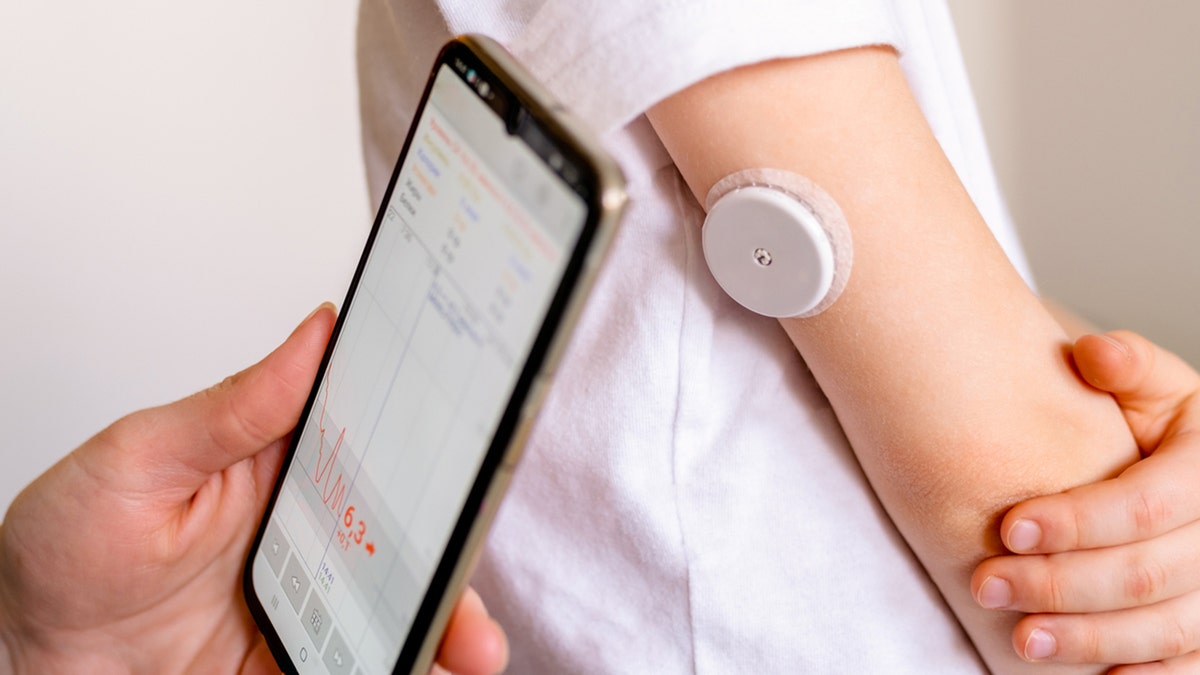NEWYou can now listen to Fox News articles!
Diabetes is one of today’s greatest healthcare challenges, affecting men, women and children of all ages. Managing diabetes is a full-time job without any breaks – each day is filled with decisions about how food, medications, and exercise will impact glucose control. In addition to the physical demands, there is another side of diabetes – fatigue, stress, anxiety, distress and burnout.
The Centers for Disease Control and Prevention estimates that people with diabetes are two to three times more likely to have depression than people without diabetes. Unfortunately, depression may negatively impact diabetes control and place those affected at higher risk of developing complications such as eye, kidney and heart disease.
I have lived with Type 1 diabetes since the age of 5, so the link between diabetes and mental well-being is personal. I have certainly had my share of frustration with the unpredictability of diabetes during my daily routine. While diabetes doesn’t define me, it is a part of me. Diabetes is something I – and anyone who shares this diagnosis – can never escape. It is omnipresent.
FORMER DIRECTOR SUES AMERICAN DIABETES ASSOCIATION, ALLEGING ‘PAY-TO-PLAY’ SCHEME WITH SPLENDA
Maybe this understanding has served me in my professional career as a physician specializing in diabetes, making me more aware of the visual and verbal cues of mental unwellness in my patients. This is also a topic we discuss daily in my role at Roche.

Research has shown that people with diabetes are two-three times as likely to have depression. (iStock)
We recently asked through a survey we’ve named “Diabetes State of Mind” if adults in the U.S., including people with diabetes, were aware of the connection between diabetes and mental health. While there is a wealth of published data on the subject, we wondered how much of this link was known outside the medical community.
The survey reported approximately one in two (51%) people were surprised that diabetes and mental health are connected, revealing an awareness void we need to fill, especially given almost one-third of people with diabetes at some point during their life experience symptoms of emotional distress, and nearly half of these cases go undetected.
It’s time to talk about mental health. And to listen. Mental health issues are a secondary complication of diabetes and should be part of a more comprehensive approach to diabetes care.
The more conversation there is, the easier it will be for people with diabetes to tell their family, friends, healthcare providers and employers if they’re not OK and then get the help they need. It is important to address issues, including diabetes distress, as it can lead to not only an improvement in emotional well-being but also in diabetes control.
Here are three ways that can help create greater awareness:
1. Understand the link between diabetes and mental health
The stress of living every day with diabetes and trying to keep it in check can actually make diabetes more difficult to control – stress releases hormones, causing more pronounced fluctuations in blood sugar, making it even harder to keep levels in the target range.
Repeated or constant diabetes distress can lead to poor self-care and hyperglycemia (high glucose levels), which is associated with a higher risk of complications like eye, kidney and heart disease.
CLICK HERE FOR MORE FOX NEWS OPINION
2. Recognize and understand the feelings people with diabetes may experience
Picture a roulette wheel where the options are frustration, exhaustion, guilt, shame, anger, anxiety and burnout. Patients say, “I must have done something to deserve diabetes,” that their feelings of diabetes burnout “come and go in waves,” and that it “exhausts their mind.”

A woman using lancet on her finger to check blood sugar level with a glucose meter. (iStock)
I get it. In my lifetime with Type 1 diabetes, I have felt the frustration of the unpredictability of diabetes and how almost every decision that I make during the day has some impact on my glucose control.
3. Create an environment where people with diabetes are comfortable talking about their feelings
This means understanding the barriers to getting help. Respondents to the “Diabetes State of Mind” survey said issues that impact the mental well-being of people with diabetes range from their ability to manage diet and exercise and attain blood glucose goals to big life transitions, intimacy challenges and ability to speak freely about diabetes and diabetes management needs at work. As for the barriers to getting help for mental health challenges, the survey reported affordability, embarrassment, judgment from friends or family and fear of stigma.
There are so many things in life, like getting diagnosed with diabetes, over which people affected have no control. The not-so-secret way to triumph over these is to control how you react to them and what people around you – from families to doctors and employers – do to make you feel supported.
The stress of living every day with diabetes and trying to keep it in check can actually make diabetes more difficult to control – stress releases hormones, causing more pronounced fluctuations in blood sugar, making it even harder to keep levels in the target range.
CLICK HERE TO GET THE FOX NEWS APP
The good news is safe spaces for people experiencing mental health challenges will help them be more likely to be proactive about communicating their feelings and needs. Doctors who are more attuned to the physical and verbal cues of mental unwellness in their patients may be able to provide a more holistic approach to treating diabetes, going beyond addressing blood glucose and monitoring for physical complications to also include mental well-being.
With 38 million of us living with diabetes in the U.S. and a growing crisis in mental health, especially among America’s adolescents and teens, we can all rest a bit easier knowing there are steps we can take to help get more people the support and help they need and that when they get it, it will make a positive difference.
Author Profile
- "Far Right" Bias Rating
- The Fox News Channel, abbreviated FNC, commonly known as Fox News, and stylized in all caps, is an American multinational conservative cable news television channel based in New York City. It is owned by Fox News Media, which itself is owned by the Fox Corporation.
Latest entries
 HeadlinesJuly 26, 2024Fox News Poll: Harris, Trump tied in Pennsylvania
HeadlinesJuly 26, 2024Fox News Poll: Harris, Trump tied in Pennsylvania HeadlinesJuly 26, 2024FBI raids $3.5M home of former aide to New York Gov. Kathy Hochul
HeadlinesJuly 26, 2024FBI raids $3.5M home of former aide to New York Gov. Kathy Hochul HeadlinesJuly 25, 2024Politico column takes aim at Biden's 'weakened capacity' to use bully pulpit: 'Half a president'
HeadlinesJuly 25, 2024Politico column takes aim at Biden's 'weakened capacity' to use bully pulpit: 'Half a president' HeadlinesJuly 25, 2024Detroit pastor slams 'identity politics' as Kamala Harris becomes presumptive Democratic nominee
HeadlinesJuly 25, 2024Detroit pastor slams 'identity politics' as Kamala Harris becomes presumptive Democratic nominee

